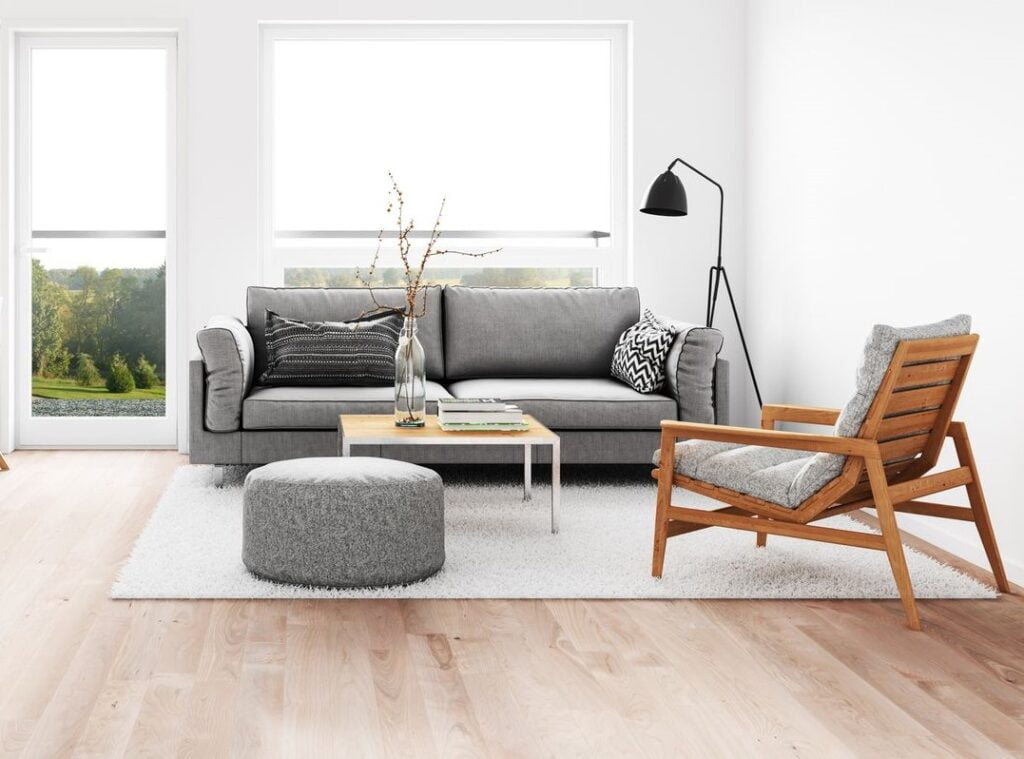Introduction:
Lifestyle Transformation: In a society full of continual diversions and the never-ending desire of more, there is a growing movement centered on less. It’s called minimalism, and it has the capacity to drastically alter your way of living. We’ll look at how embracing simplicity through minimalism can lead to a lifestyle makeover that brings clarity, purpose, and contentment in this post. This journey toward a simpler, more deliberate existence is for you, whether you’re new to minimalism or a seasoned minimalist looking for inspiration.
Understanding Minimalism:
What is Minimalism?
Minimalism is a lifestyle transformation philosophy that encourages people to simplify their lives by focusing on what is actually important to them and removing superfluous distractions, possessions, and clutter. It’s about accepting the idea that less may be more, and that by consciously choosing to have and consume less, you can live a more meaningful and purposeful life.
Featured Snippet
explores the profound impact of minimalism.
It advocates intentional living, focusing on essentials, and decluttering.
The benefits include reduced stress, financial freedom, improved time management, and mindful consumption.
A minimalist mindset promotes gratitude and the embrace of imperfections.
In relationships, quality surpasses quantity, leading to meaningful connections.
Minimalism extends to digital life, reducing screen time, organizing digital spaces, and sustainability.
It promotes sustainability by reducing consumption, minimizing waste, and supporting eco-friendly choices.
Minimalism enhances self-care, reducing stress, improving well-being, and prioritizing mental, emotional, and physical health.
The journey may involve sentimental attachments, resistance from others, and financial challenges.
Personalize your path by setting goals, staying inspired, and remaining adaptable.
Ultimately, minimalism is a transformative journey that empowers you to live a more meaningful and intentional life.
Key Principles of Minimalism For Lifestyle Transformation :
Intentionality:
Minimalism promotes careful decisions in all aspects of life. It makes you evaluate whether the things you own, the activities you participate in, and the people you associate with are consistent with your basic values and ambitions.
Decluttering:
Decluttering your physical area is a crucial part of minimalism. This entails going through your belongings and getting rid of things that no longer serve a function or bring you joy. The goal is to create a clutter-free atmosphere that enhances mental clarity and decreases stress.
Quality Over Quantity:
Minimalism prioritizes quality experiences and things above quantity. It encourages you to invest in objects and experiences that actually enhance your life rather than pursuing an abundance of things.
Mindful Consumption:
Minimalism encourages deliberate and intentional consumption. It encourages you to think about the environmental and personal consequences of your purchases and to avoid making impulsive purchases to adopt lifestyle transformation.
The Roots of Minimalism:
Minimalism is influenced by a variety of cultural and philosophical trends, all of which have contributed to its growth and popularity:

Zen Buddhism:
Zen Buddhism promotes simplicity, awareness, and the notion that true riches can only be found in experiencing the present moment. Zen values are reflected in minimalism’s emphasis on living in the now and simplifying.
Bauhaus Design Movement:
The Bauhaus design movement, which originated in the early twentieth century, advocated for utilitarian, minimalist design with clean lines and simplicity. This impact can be seen in the aesthetics of minimalist design.
Simple Living Movements:
Throughout history, numerous simple living movements have advocated for a life that is less focused on money and more focused on basic values and spirituality. These movements aided in the development of minimalism.
Understanding these foundations allows us to appreciate minimalism as a philosophy profoundly entrenched in concepts that have been embraced and perfected by societies and thinkers throughout history. It encourages intentionality, contentment, and a deeper connection with the necessities of life while letting go of the excess.
The Benefits of Minimalism:
Minimalism is more than simply a trendy way of life, it provides numerous benefits that can greatly improve your quality of life. In this section, we’ll look at some of the primary benefits of embracing minimalism in several aspects of your life.
Decluttering Your Space:
1. A More Organized Environment:
Minimalism encourages you to clean your physical area by getting rid of superfluous items. By simplifying your surroundings, you create an orderly and tidy setting that promotes productivity and relaxation.
2. Reduced Stress:
Overwhelm and stress can be exacerbated by clutter. You can relieve the mental strain of continually maintaining and organizing your stuff by minimizing clutter.
3. Increased Productivity:
A clutter-free workstation allows you to concentrate on your duties more effectively, resulting in enhanced productivity. You can operate more efficiently and successfully when you are not distracted by a chaotic setting.

Simplifying Your Finances
4. Financial Freedom:
Minimalism extends into your financial life, urging you to evaluate your spending patterns and prioritize what is genuinely important. This can result in less financial stress, debt reduction, and the opportunity to save and invest for the future, eventually leading to financial freedom.
5. Reduced Consumerism:
Minimalism encourages careful spending while discouraging spontaneous purchases and wasteful consumption. As a result, you’re less likely to incur debt and more inclined to make deliberate, value-driven purchases.
Time Management and Minimalism
6. Enhanced Time Management:
One of your most valuable resources is time. Minimalism encourages you to prioritize activities and commitments that correspond with your beliefs and goals, allowing you to better manage your time.
7. Reduced Overwhelm:
Minimalism can help you say no to activities and obligations that offer no value to your life. This alleviates the feeling of being overwhelmed by a packed schedule.
8. Increased Work-Life Balance:
You can create a healthier work-life balance by simplifying your life and better managing your time, allowing you to prioritize not only your career but also your personal well-being, relationships, and leisure activities.
Minimalism can provide various benefits, including a more ordered and stress-free living environment, increased financial stability, and improved time management skills. These benefits can lead to increased overall happiness and a sense of control over your life. Minimalism urges you to shift your attention from material possession accumulation to the pursuit of experiences, relationships, and personal growth, ultimately improving your lifestyle for the betterment.

Embracing Minimalist Mindset:
Minimalism entails establishing a mindset that values simplicity, contentment, and intentionality in addition to simplifying your physical area. In this section, we’ll look at the fundamentals of having a minimalist mindset and how it can improve your life.
Cultivating Gratitude:
1. Appreciating the Present:
Minimalism helps you to shift your focus from continuously seeking more to enjoying what you have now. This adjustment in perspective encourages thankfulness for the people, experiences, and belongings that enrich your life.
2. Reduced Materialism:
Minimalism helps you and break free from the cycle of materialistic demands by emphasizing experiences and connections over material goods. This can result in less stress and a greater sense of contentment with what you already have.
3. Emotional Well-Being:
Gratitude is linked to increased emotional well-being. According to research, those who practice thankfulness have less anxiety and sadness, more happiness, and better overall mental health.
Letting Go of Perfectionism
4. Embracing Imperfections:
Perfection can be exhausting and impossible to achieve. Minimalism encourages you to embrace flaws to adopt lifestyle transformation, acknowledging that it is acceptable to make mistakes and not have everything in your life perfectly matched.
5. Reducing Stress:
The relentless pursuit of perfection frequently causes tension and worry. When you let go of the need for perfection, you can feel a sense of relaxation and more mental serenity.
6. Focusing on Progress:
Minimalism promotes the pursuit of progress rather than perfection. It’s about constant progress and personal growth, with the emphasis on moving forward and learning from your experiences.
Adopting a minimalist mindset entails valuing the present moment, limiting materialistic aspirations, and letting go of perfectionism is very important. This mental shift can result in more emotional well-being, less stress, and a greater sense of happiness with life as it unfolds. Minimalism teaches you to value what actually matters and to approach life with aim and acceptance of flaws, resulting in a more fulfilling and meaningful life.
Minimalism in Relationships:
Minimalism extends beyond eliminating tangible possessions to your social life and relationships. This section looks at how adopting minimalism might lead to healthier, more meaningful relationships with others.
Quality Over Quantity:
1. Fewer, Deeper Connections:
Minimalism encourages you to prioritize the quality of your connections over quantity. You can create deeper, more meaningful connections with friends and loved ones by doing so.
2. Reduced Superficiality:
Minimalism encourages you to move away from shallow relationships and focus your time and energy in those that genuinely important to you in a society driven by social media and superficial interactions.
3. Enhanced Communication:
When you have fewer, more important relationships, you have more time and attention to devote to each one. This can result in better communication, understanding, and stronger ties.
Communication and Connection:
4. Mindful Interaction:
Minimalism promotes thoughtful contact with others. You may strengthen your connections and establish stronger relationships by reducing distractions and being totally present in your conversations and interactions.
5. Empathy and Compassion:
You’re more inclined to prioritize empathy and compassion in your interactions if you have a minimalist worldview. During difficult circumstances, this can lead to more understanding and support.
6. Shared Experiences:
Experiences are more valuable than goods, according to minimalism. Sharing meaningful experiences with others, rather than financial gifts or extravagance, might help you form stronger bonds with people.
Relationship minimalism is about choosing quality over quantity, cultivating deeper ties, and encouraging meaningful conversation. You can cultivate more rewarding and authentic connections with friends, family members, and partners if you adopt this method. Minimalism encourages you to value the time and energy you put into your relationships, which leads to greater happiness and purpose in your social connections.

Minimalism in the Digital Age:
Minimalism extends beyond eliminating tangible possessions to your social life and relationships. This section looks at how adopting minimalism might lead to healthier, more meaningful relationships with others.
Quality Over Quantity:
1. Fewer, Deeper Connections:
Minimalism encourages you to prioritize the quality of your connections over quantity. You can create deeper, more meaningful connections with friends and loved ones by doing so.
2. Reduced Superficiality:
Minimalism encourages you to move away from shallow relationships and focus your time and energy in those that genuinely important to you in a society driven by social media and superficial interactions.
3. Enhanced Communication:
When you have fewer, more important relationships, you have more time and attention to devote to each one. This can result in better communication, understanding, and stronger ties.
Communication and Connection
4. Mindful Interaction:
Minimalism promotes thoughtful contact with others. You may strengthen your connections and establish stronger relationships by reducing distractions and being totally present in your conversations and interactions.
5. Empathy and Compassion:
You’re more inclined to prioritize empathy and compassion in your interactions if you have a minimalist worldview. During difficult circumstances, this can lead to more understanding and support.
6. Shared Experiences:
Experiences are more valuable than goods, according to minimalism. Sharing meaningful experiences with others, rather than financial gifts or extravagance, might help you form stronger bonds with people.
Relationship minimalism is about choosing quality over quantity, cultivating deeper ties, and encouraging meaningful conversation. You can cultivate more rewarding and authentic connections with friends, family members, and partners if you adopt this method. Minimalism encourages you to value the time and energy you put into your relationships, which leads to greater happiness and purpose in your social connections.
Sustainability and Minimalism:
In an age of environmental concerns and resource depletion, minimalism is directly related to sustainability concepts. This section investigates how minimalism might help to a more sustainable and environmentally conscientious way of life.
Environmental Impact:
Minimalism promotes consuming less and prioritizing what actually provides value to your life. This decrease in consumption reduces demand for resources and manufacturing, resulting in a smaller environmental imprint.
2. Less Waste:
A minimalist lifestyle frequently entails purchasing fewer disposable and single-use things. As a result, you produce less garbage and contribute less to landfills and pollution.
3. Mindful Choices:
Minimalism encourages you to make more deliberate purchasing decisions. You’re more inclined to think about the environmental impact of your purchases, choosing eco-friendly and sustainable alternatives.
Sustainable Practices:
4. Repurposing and Recycling:
When it comes to goods, minimalism stimulates innovative thinking. You can reuse or recycle products you currently own, decreasing the need for new purchases.
5. Energy and Resource Efficiency:
Simplifying your life can result in improved energy and resource efficiency. A smaller living space, for example, may take less energy to heat or cool, and possessing fewer belongings may result in lower resource usage.
6. Supporting Sustainable Brands:
You are more inclined to support brands that share your ideals of simplicity and sustainability as a minimalist. You may help to make the market more sustainable by purchasing products from environmentally conscientious companies.
Personal Sustainability:
7. Reduced Stress:
The emphasis on decluttering and simplifying in minimalism might lead to less mental clutter and tension. A stress-free mind is better able to focus on sustainability activities and make environmentally responsible choices.
8. Long-Term Sustainability:
Minimalism promotes a long-term view on goods. You’re less prone to acquire goods on the spur of the moment and discard them soon, which adds to a more sustainable, less throwaway culture.
Lifestyle transformation, minimalism and sustainability go hand in hand. You may lessen your environmental effect, generate less trash, and make more eco-conscious decisions in your daily life by embracing minimalism. This way of life not only benefits the environment, but it also encourages a more conscious and fulfilling existence that is consistent with your beliefs of simplicity and environmental responsibility.
Minimalism in Self-Care:
Maintaining physical, emotional, and mental well-being requires self-care. Minimalism can help you understand how simplifying various elements of your life can help and more effective and fulfilling self-care routine.
Mental and Emotional Well-Being:
1. Reducing Mental Clutter:
A busy environment frequently corresponds to a congested mind. Minimalism encourages you to declutter your physical environment, which can lead to less mental congestion and greater mental clarity.
2. Stress Reduction:
Simplifying your life, whether via decluttering, creating boundaries, or limiting responsibilities, can reduce stress and improve your overall mental and emotional well-being.
3. Mindful Living:
Mindfulness, or being totally present in the moment, is promoted by minimalism. Mindfulness practice can help you manage stress, increase your focus, and boost your emotional resilience.
Balancing Priorities:
4. Prioritizing Self-Care:
Minimalism encourages you to value self-care as an important part of your life. You create more time and energy for self-care activities by streamlining your obligations and learning to say no when required.
5. Time for Reflection:
You have more time for self-reflection and self-discovery when you live a modest lifestyle. This can result in increased self-awareness and personal growth, which can benefit your general well-being.
6. Enhanced Relationships:
Minimalism extends to your interpersonal interactions, emphasizing quality over quantity. This approach to social interactions has the potential to lead to more meaningful and supportive relationships, which are essential for your emotional well-being.
Physical Health
7. Healthier Lifestyle:
Minimalism can have an impact on your lifestyle decisions, prompting you to choose a healthy diet, regular exercise, and improved sleep patterns. These decisions have a direct impact on your physical health.
8. Reduced Materialism:
Excessive materialism is discouraged by minimalism, which can lead to unhealthy consumption habits. You can prioritize your health and well-being over consumerism by limiting your attention on material items.
Minimalism and self-care are inextricably linked. You may minimize stress, make more time for self-care activities, and prioritize your mental, emotional, and physical well-being by simplifying your life. Finally, minimalism enables you to live a more balanced and intentional life that promotes self-care as an essential component of overall well-being.
Overcoming Challenges and Resistance:
While embracing simplicity can have transforming effects, it is not always an easy road. This section discusses frequent problems and offers techniques for overcoming resistance along the road.
Dealing with Sentimental Items
1. Emotional Attachments:
Many people find it difficult to part with sentimental artifacts such as old photographs, gifts, or heirlooms. Minimalism encourages you to cherish the memories linked with these goods while also contemplating their usefulness in your current life.
2. Solutions:
To address this issue, you can photograph emotional items to preserve the memories, give them to family members who may value them, or designate a special room for sentimental goods rather than allowing them to clutter your living areas.
Resistance from Others
1. Lack of Understanding:
Friends and relatives may not understand or support your minimalist path completely. They may criticize your decisions or perhaps try to dissuade you from embracing simplicity.
2. Solutions:
It’s critical to share your motivations for embracing simplicity with family and friends. Share how it improves your well-being and helps you to concentrate on what really important. Encourage open dialogue and be tolerant with their responses.
3. Lead by Example:
Sometimes showcasing the good improvements in your life as a result of minimalism is the greatest approach to overcome reluctance. Others may become more supportive or even inspired to simplify their life if they witness the benefits directly.
Managing Minimalism in Different Life Stages
1. Family Life:
When you have a family with varied requirements and interests, embracing minimalism might be more difficult. Individual minimalism must be balanced with family dynamics, which necessitates open communication and compromise.
2. Solutions:
Participate in the decision-making process with your family. Discuss the benefits of minimalism as a family, establish joint goals, and figure out how to meet everyone’s requirements while simplifying your collective lifestyle.
Financial Challenges
1. Debt and Financial Obligations:
If you have a lot of debt or financial obligations, adopting minimalism may seem like a distant dream. However, minimalism can be a useful approach for gradually improving your financial condition.
2. Solutions:
Begin by making a budget, cutting down unnecessary expenses, and defining financial goals. As you minimize your consumption and emphasize what is genuinely important, you can strive toward financial security and freedom over time.
Embracing minimalism can be a lifestyle transformation path, but it is not without difficulties and opposition from both within and beyond. You can effectively handle these obstacles by addressing emotive attachments, handling resistance from others, and finding practical answers for various life stages and financial situations. Remember that minimalism is a personal journey, with the ultimate objective of creating a lifestyle that resonates with your beliefs and gives you more contentment and purpose.
Your Personal Minimalist Journey
Your path to lifestyle transformation with minimalism is incredibly personal, and it’s critical to set objectives, track your progress, and find continual inspiration to keep motivated. This section looks at ways to make your minimalist journey meaningful and long-lasting.
Setting Goals:
1. Define Your Why:
Begin by identifying why you wish to adopt simplicity. Is it to alleviate stress, gain financial independence, or live a more environmentally conscious life? Understanding your motives will assist you in setting specific and meaningful goals.
2. Prioritize Your Goals:
Because minimalism is a multifaceted lifestyle required for lifestyle transformation, prioritize your goals based on what is most important to you. Focus on a few essential areas at a time, whether it’s decluttering your home, streamlining your finances, or increasing your well-being.
3. Make SMART Goals:
Make goals that are Specific, Measurable, Achievable, Relevant, and Time-bound (SMART). Rather than saying, “I want to declutter my home,” say, “I will declutter one room each month for the next six months.”
Staying Inspired
1. Regularly Reflect:
Take some time to reflect on your success and how minimalism has benefited your life. Celebrate your achievements, no matter how minor, and use them as motivation to keep going.
1. Regularly Reflect:
Take some time to reflect on your success and how minimalism has benefited your life. Celebrate your achievements, no matter how minor, and use them as motivation to keep going.
2. Seek Inspiration:
Minimalism can be found via books, blogs, movies, and the stories of those who have successfully chosen a minimalist lifestyle. Learning from their experiences might bring useful insights and motivation.
3. Mindful Consumption:
Keep an eye on the media and stuff you consume. Minimalism extends to what you expose yourself to mentally as well. Choose information that reflects your minimalist beliefs and inspires you.
Flexibility and Adaptability
1. Embrace Flexibility:
Minimalism does not have to be constrained. It’s fine to adjust your strategy when your circumstances change. What works for you today may not work for you tomorrow, and that’s absolutely fine.
2. Learn from Setbacks:
Minimalism does not have to be constrained. It’s fine to adjust your strategy when your circumstances change. What works for you today may not work for you tomorrow, and that’s absolutely fine.
3. Share Your Journey:
Sharing your experiences and progress with like-minded others who are on the same journey, whether in person or online, can provide accountability and incentive.
Your own minimalist journey is an ongoing process of self-discovery and development. You may develop a sustainable and meaningful minimalist lifestyle that resonates with your beliefs and improves your general well-being by setting clear goals, reflecting on your progress regularly, staying inspired, and remaining adaptive. Remember that minimalism is a journey, not a destination, and that it is about seeking to live a more meaningful and fulfilling life continuously.
Conclusion
Embracing simplicity through minimalism has the power to transform your lifestyle in profound ways. By decluttering your space, simplifying your finances, and cultivating a minimalist mindset, you can achieve greater clarity, purpose, and contentment. Minimalism extends to your relationships, digital life, and even sustainability efforts, making it a holistic approach to living intentionally and meaningfully. As you embark on your personal minimalist journey, remember that it’s not about perfection but progress—a journey towards a life filled with what truly matters.

